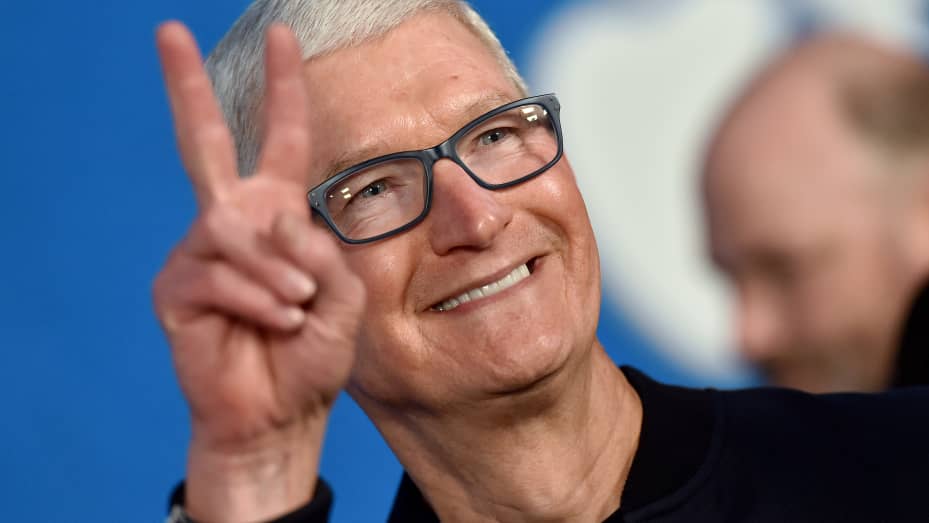
CNBC가 전한 소식이다.
애플이 자율주행차 출시에 박차를 가하고 있다는 보도가 나오자 애플의 주가는 금요일 사상 최고치를 경신했다. 애플의 주가는 1.7% 상승해 주당 160.55달러에 거래됐다.
블룸버그(Bloomberg)의 보도에 따르면 회사는 내부적으로 자율 주행 차량의 기한인 2025년을 추진하고 있는 것으로 밝혀졌다.
애플(Apple)의 전기 자동차 시장 진출은 회사를 테슬라(Tesla)와 경쟁할 수 있을 뿐만 아니라 리비안(Rivian) 및 루시드 모터(Lucid Motors)와 같은 신흥 업체 및 화석 연료에서 멀어지고 있는 전통적인 자동차 제조업체와 경쟁할 수 있다. 더 많은 소비자와 투자자들은 제 2의 테슬라가 무엇인지에 대한 관심이 커지면서 EV 주가는 최근 몇 달 동안 급등했다.
리비안(Rivian)은 올해 상장된 가장 큰 기업 공개(IPO) 중 하나로 지난 주, 포드와 제너럴 모터스(GM)의 시가 총액을 능가했다.
애플(Apple)의 자율주행차 시장 진출 가능성은 오랫동안 논의되는 주제였다. 모건 스탠리(Morgan Stanley)는 블룸버스(Bloomberg) 기사에 이어 두 개의 메모를 게시했으며 모건 스탠리의 애플 분석가 케이티 허벌티(Katy Huberty)는 “애플 내부자에게 제공되는 광범위한 데이터 포인트를 포함하여 잠재적으로 애플의 자동차 출시는 새로운 기술(EV + AV)의 채택을 가속화하고 과거 애플 제품 출시와 유사한 시장을 확장할 수 있다.”라고 말했다.
그녀는 이러한 자동차는 애플의 새로운 시도를 대표하지만 새로운 시장에서 회사의 실적과 수직적 통합 기능이 성공을 예고할 수 있다고 말했다. 그녀는 주식은 현재 매수 등급에 해당하며 자동차는 애플이 매출과 시가 총액을 두 배로 늘리는 ”가장 명확한 경로”를 제시한다고 말했다.
애플의 주가는 올해 21% 상승하여 회사 시가 총액이 2조 6000억 달러를 넘어섰다. 허벌티는 “애플은 항상 최초의 시장은 아니지만, 혁신 엔진, 수직적 통합을 통한 차별화, 제조/운영 우수성으로 인해 최초의 기업을 뛰어넘을 수 있다는 것을 지난 20년 동안의 여러 사례를 통해 보여줬다.”라고 평가했다.
다만, 테슬라를 담당하는 모건스탠리의 아담 조나스는 애플의 자동차를 ”궁극의 EV 베어 케이스”라고 평가하며 애플의 우주 진출을 ”자동차 커버리지의 대부분에 대해 분명히 부정적인 신호가 많다”고 말했다. 조나스는 완전 자율 차량이 수많은 도덕적, 법적, 기술적 장벽으로 인해 미국에서 채택되기가 더딜 것이라고 덧붙였다.
또한 그는 ″분명히 말하자면, 우리는 소비자들이 완전 자율주행 자동차에 대한 소유권을 가질 것이라고 생각하지 않는다. 구독 또는 운송 유틸리티로 서비스에 참여하게 될 것이다.”라고 그는 말했다.
Apple shares closed at a record high on Friday following a report that the company is accelerating efforts to launch a self-driving vehicle. Apple’s stock closed up 1.7% and traded at $160.55 a share.
According to the full report from Bloomberg News, the company is pushing internally for a 2025 deadline for an autonomous vehicle.
Apple’s entry into the electric vehicle space could put the company in competition with Tesla as well as emerging players like Rivian and Lucid Motors and traditional automakers that are moving away from fossil fuels. EV stocks have surged in recent months as more consumers and investors bet on what they hope will be the next Tesla.
Rivian went public last week in one of the biggest IPOs of the year, and quickly surpassed the market cap of automakers Ford and General Motors. Shares of Rivian and Lucid, which went public through a special purpose acquisition company in July, have been volatile all week.
Apple’s potential entry into the autonomous vehicle space has long been a topic of speculation. Morgan Stanley published two notes following the Bloomberg story, and analyst Katy Huberty wrote in one that it’s “the first press report to include a broad number of data points sourced to Apple insiders and provides enough reported detail to potentially lend credibility to the idea that Apple’s Car launch could both accelerate adoption of new technology (EV + AV) and expand the addressable market similar to past Apple product launches.”
While autos represent a brand new endeavor for Apple, the company’s track record in new markets and its vertical integration capabilities could foreshadow success, wrote Huberty, Morgan Stanley’s Apple analyst. She has the equivalent of a buy rating on the stock and said cars present the “clearest path” for Apple to double its revenue and market cap, she wrote.
Apple shares are up 21% this year, lifting the company’s market cap past $2.6 trillion.
“We can provide a number of examples from the last 20 years that show while Apple may not always be first to market, its innovation engine, differentiation via vertical integration, and manufacturing/operational excellence have allowed it to leapfrog first movers,” Huberty wrote.
Morgan Stanley’s Adam Jonas, who covers Tesla, referred to Apple’s car as “the ultimate EV bear case” and called the tech giant’s entry into the space a “clear negative for much of our automobile coverage.” Fully-autonomous vehicles will be slow to gain adoption in the U.S. because of a myriad of moral, legal, and technological barriers, Jonas added.
“To be clear, we do not believe consumers will own title to a fully autonomous car … but will engage in the service as a subscription or transport utility,” he wrote.
![]()



![[IT 트렌드 바로읽기] 피지컬 AI 사회](https://mobiinsidecontent.s3.ap-northeast-2.amazonaws.com/kr/wp-content/uploads/2025/11/27151636/251127_%ED%94%BC%EC%A7%80%EC%BB%AC-AI-%EC%82%AC%ED%9A%8C_%EC%84%AC%EB%84%A4%EC%9D%BC-218x150.png)

![[피처링 IN플루언서 IN사이트] 귀하게 자란 내가 이 신제품을 써도될까? 테크 인플마 트렌드 🖥️](https://mobiinsidecontent.s3.ap-northeast-2.amazonaws.com/kr/wp-content/uploads/2025/09/17170244/250918_%ED%85%8C%ED%81%AC-%EC%9D%B8%ED%94%8C%EB%A3%A8%EC%96%B8%EC%84%9C_%EC%84%AC%EB%84%A4%EC%9D%BC-218x150.png)